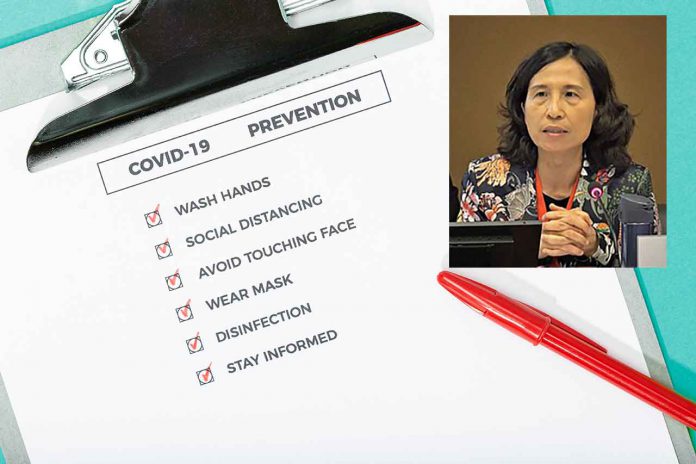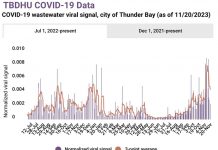OTTAWA – COVID-19 Update: In lieu of an in-person update to the media, Dr. Theresa Tam, Canada’s Chief Public Health Officer, issued the following statement today:
“As the resurgence of COVID-19 activity continues in Canada, we are tracking a range of epidemiological indicators to monitor where the disease is most active, where it is spreading and how it is impacting the health of Canadians and public health, laboratory and healthcare capacity. The following is the latest summary on national numbers and trends, and the actions we all need to be taking to maintain COVID-19 at manageable levels across the country. Due to reduced reporting over the weekend, national seven-day averages have not been updated in today’s statement.
63,835 active cases
7.6% testing positive
Cases are increasing among older adults
These data are still being collected and analysed. I will provide the latest numbers during my remarks tomorrow.
Since the start of the pandemic, there have been 370,278 cases of COVID-19, including 12,032 deaths reported in Canada; these cumulative numbers tell us about the overall burden of COVID-19 illness to date. Though the cumulative number is high and many areas are experiencing rapid growth, it is important to remember that the vast majority of Canadians remain susceptible to COVID-19. This is why it is important for everyone to continue with individual precautions to protect ourselves, our families and our communities.
At this time, there are 63,835 active cases across the country. The latest national-level data indicate daily averages of 5,335 new cases (Nov 20-26) and 75,666 people tested daily, with 7.6% testing positive (Nov 15-21). Both community transmission and outbreaks are contributing to COVID-19 spread in Canada, including spread to high risk populations and settings. Cases are increasing among older adults, with those aged 80 years and older currently having the highest incidence rate, nationally. More and larger outbreaks are occurring in long term care homes, congregate living settings and hospitals, and spreading in Indigenous communities and more remote areas of the country. These developments are deeply concerning as they put countless Canadians at risk of life-threatening illness, cause serious disruptions to health services and present significant challenges for areas not adequately equipped to manage complex medical emergencies.
Across Canada, the number of people experiencing severe illness continues to increase. Provincial and territorial data, indicate that an average of 2,111 people with COVID-19 were being treated in Canadian hospitals each day during the most recent 7-day period (Nov 20-26), including 432 of whom were being treated in intensive care units. During the same period, there were an average of 76 COVID-19-related deaths reported daily. This situation is putting pressure on local healthcare resources and forcing hospitals to make the difficult decision to cancel elective surgeries and procedures in several areas of the country.
Right now, we have a window of opportunity to act collectively together with public health authorities to bring the infection rate down to a safer trajectory. Two things are being asked of us: to follow local public health advice as measures are introduced for controlling spread across the population and to strictly and consistently maintain our individual protective practices to help prevent infection and spreading the virus. Stay home and self-isolate if you have any symptoms, even mild ones; keep up with frequent hand, cough and surface hygiene; maintain physical distancing; wear a face mask when around people from outside of your immediate household; and avoid or limit time spent in the 3Cs – closed spaces, crowded places and close-contact settings and situations.
As with our last effort to bend the curve, and more so now, this is not going to be a quick solution but a test of our determination and endurance. While now is not the time to gather, we can take comfort in knowing that the sacrifices we are making today are for our tomorrow. Now, is the time to plan holidays that are safer and still allow us to maintain our important traditions – finding new ways to celebrate, connect and support each other. With resilience and resolve, let’s focus on the things that we can do, including doing our utmost to protect our families, friends and communities.
Canadians can also go the extra mile by sharing credible information on COVID-19 risks and prevention practices and measures to reduce COVID-19 in communities and by downloading the COVID Alert app to break the cycle of infection and help limit the spread of COVID-19.
What comes next for us this Fall and Winter is for every one of us to determine, through our decisions and actions. Every effort you can make matters. Let’s bring COVID-19 down, together! Read my backgrounder to access more COVID-19 Information and Resources on ways to reduce the risks and protect yourself and others.”
SOURCE Public Health Agency of Canada






